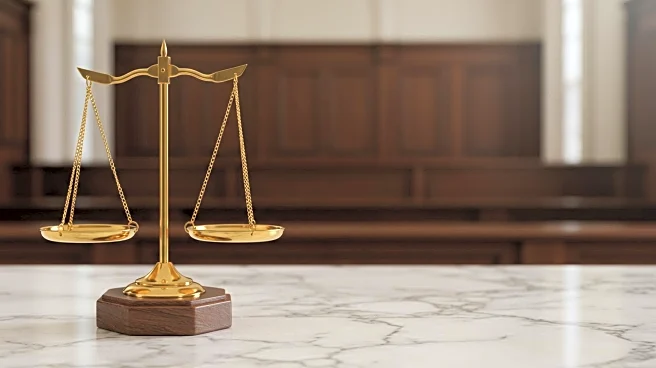What's Happening?
An appeals court has overturned a $500 million penalty that President Trump was ordered to pay in a New York civil fraud case. The New York Supreme Court's Appellate Division ruled that while Trump was liable for fraud, the financial penalty was excessive and likely violated constitutional protections against severe punishment. The original ruling by Judge Arthur Engoron had found Trump guilty of inflating the value of his properties to secure favorable loans, resulting in a $355 million fine that grew to over $500 million with interest. Despite the penalty being overturned, the court upheld Trump's liability for fraud and maintained other non-monetary penalties, such as a ban on Trump serving as a company director or taking out loans in New York for three years.
Why It's Important?
The decision has significant implications for both Trump's business operations and his political narrative. While the financial penalty was overturned, the ruling reaffirms Trump's liability for fraud, which could impact his business dealings and public image. The New York Attorney General's Office, which brought the case, views the decision as a partial victory, as it maintains the fraud liability. The case highlights ongoing legal challenges faced by Trump, which could influence public perception and his political career. The ruling also underscores the complexities of handling legal cases involving high-profile figures, particularly those with significant political influence.
What's Next?
The New York Attorney General's Office plans to appeal the decision on the financial penalty to the state's highest court, the Court of Appeals. This ongoing legal battle could further delay a final resolution and continue to draw public and media attention. The outcome of the appeal could have broader implications for how financial penalties are assessed in cases involving significant fraud. Additionally, Trump's legal team may continue to challenge other aspects of the ruling, potentially prolonging the legal proceedings.
Beyond the Headlines
The case raises questions about the intersection of business practices and political influence, particularly in how legal systems handle cases involving prominent figures. The ruling also reflects broader debates about the appropriateness of financial penalties in fraud cases and the role of the judiciary in regulating business conduct. The decision may set a precedent for future cases involving similar allegations of financial misconduct.









